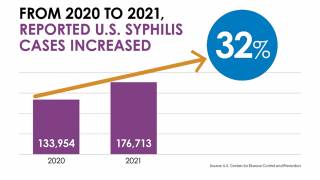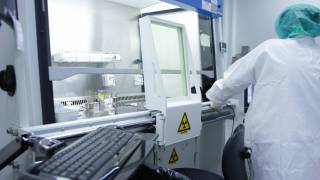2 or 3 HPV Doses, Which is Best For Women?

A new study reported the long-term immunogenicity of the 2-dose Human Papillomavirus (HPV) vaccine was similar to the 3-dose vaccination schedule.
These researchers compared the immunogenicity of 2-dose (2D) versus 3-dose (3D) schedules of the quadrivalent HPV vaccine (Gardasil 4vHPV) up to 10 years after the first vaccine dose.
This cancer prevention study, published in Clinical Infectious Diseases on September 6, 2019, was a follow-up to a previous post hoc analysis of a Phase 3, post-licensure, age-stratified, noninferiority immunogenicity trial.
It included girls ages 6 to 13 years who were randomized to receive 2 or 3 doses of the quadrivalent vaccine compared with women ages 16 to 26 years who received 3 doses. Antibody levels were evaluated at 7, 24 and 120 months after the first dose.
Between 24 and 120 months, there was a statistically significant reduction in Geometric Mean Titers (GMT) for all HPV types for all groups.
At 120 months, the data from 35 2D girls, 38 3D girls, and 30 3D women were used for analyses.
The competitive Luminex Immunoassay (cLIA) seropositivity rates were reported above 95 percent for all HPV vaccine types and all schedules, except HPV18.
These researchers said ‘they did not observe a significant difference in the decline of antibody titers over time between 2D and 3D girls, or between either 2D and 3D girls with 3D women.’
In conclusion, ‘these data provide further reassurance in support of the World Health Organization's (WHO) recommendation for the 2-dose HPV vaccination schedules.’
And, ‘this is the first study showing the 2-dose schedule of the 4vHPV vaccine is highly immunogenic and antibody responses persisted up to 10 years post-vaccination’ said these researchers.
The WHO says HPV causes cervical cancer, which is the 4th most common cancer in women, with an estimated 266,000 deaths and 528,000 new cases in 2012. Although most infections with HPV cause no symptoms, persistent genital HPV infection can cause cervical cancer in women.
Virtually all cervical cancer cases (99%) are linked to genital infection with HPV.
There are 3 HPV vaccines that are now being marketed in many countries throughout the world - a bivalent, a quadrivalent, and a nonavalent vaccine.
All 3 vaccines are highly efficacious in preventing infection with virus types 16 and 18, which are together responsible for approximately 70 percent of cervical cancer cases globally.
These HPV vaccines are also highly efficacious in preventing precancerous cervical lesions caused by these virus types, says the WHO.
The Michael Smith Foundation for Health Research, the Canadian Immunization Research Network and the Ministries of Health of the provinces of British Columbia, Nova Scotia, and Quebec provided the funding for this project. Antibody data provided by Merck & Co., Inc., Kenilworth, NJ at no cost for the study. Various industry relationships were disclosed.
HPV news published by Precision Vaccinations
Our Trust Standards: Medical Advisory Committee

























